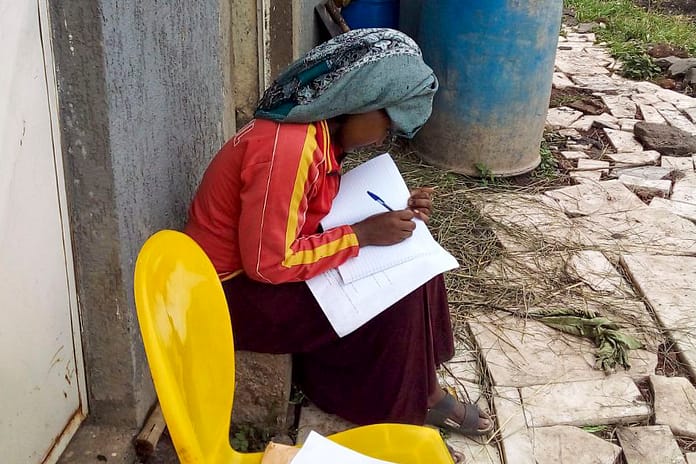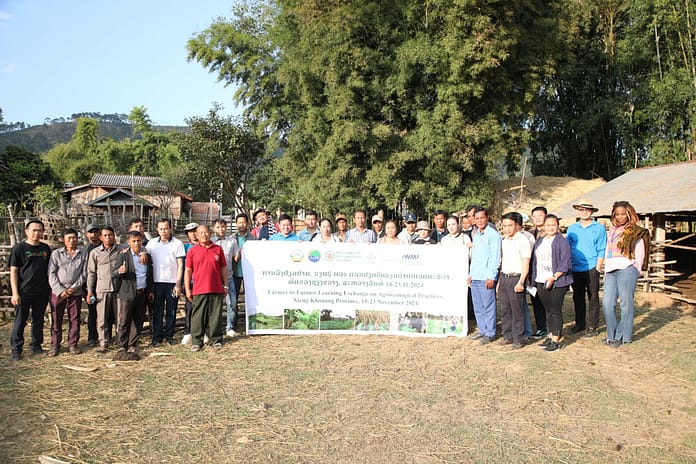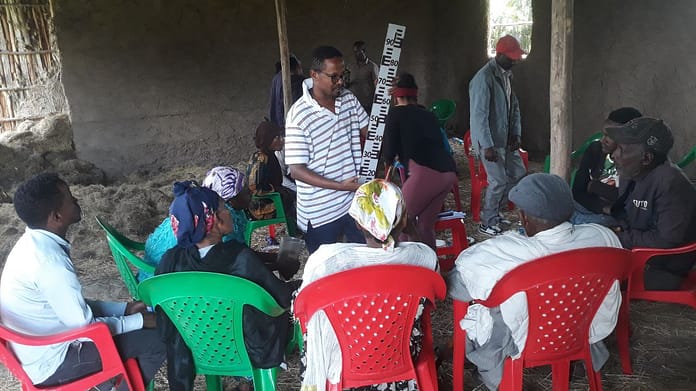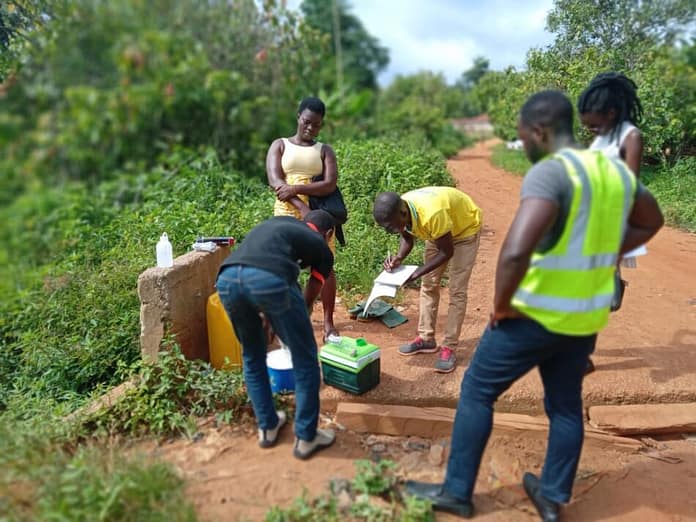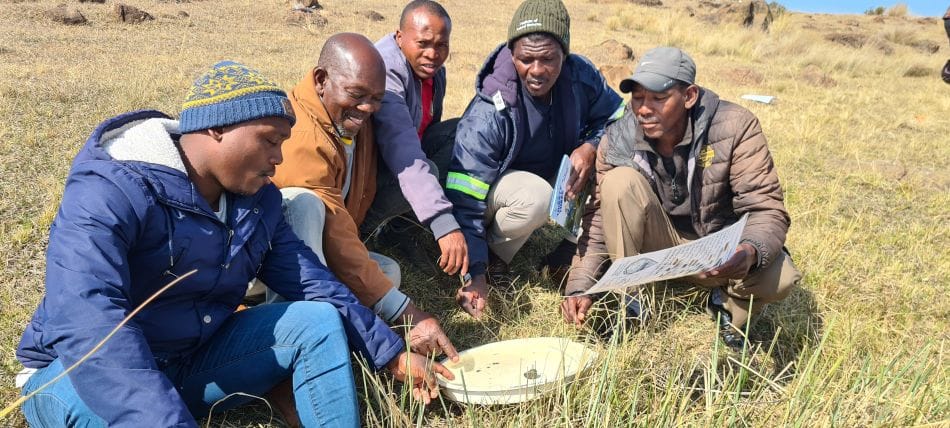
The International Water Management Institute (IWMI) has been working with smallholder farmers in Kenya and Zimbabwe, engaging them as citizen scientists to advance agroecology. A new mobile phone application is envisioned to help smallholder farmers collect data on the 13 principles of agroecology including soil health, biodiversity and water management to stay on track with their agroecological practices and improve resource use efficiency.
The new app is part of a proposed agroecology self-assessment framework to respond to the global threat to agricultural land and aquatic ecosystems degradation, pollution and climate change. These are significant challenges to ensuring access to adequate nutritious food and good quality water which remain top priorities for human health and well-being.
Agroecology is a promising approach to strengthen and transform smallholder farming and agriculture. Its transdisciplinary nature, which encompasses ecological, socio-cultural, economic, technological and political dimensions, positions it as a cornerstone for transforming food systems. However, assessing the impact of agroecology at different scales and contexts is hindered by a lack of data and a lack of awareness of its full potential.
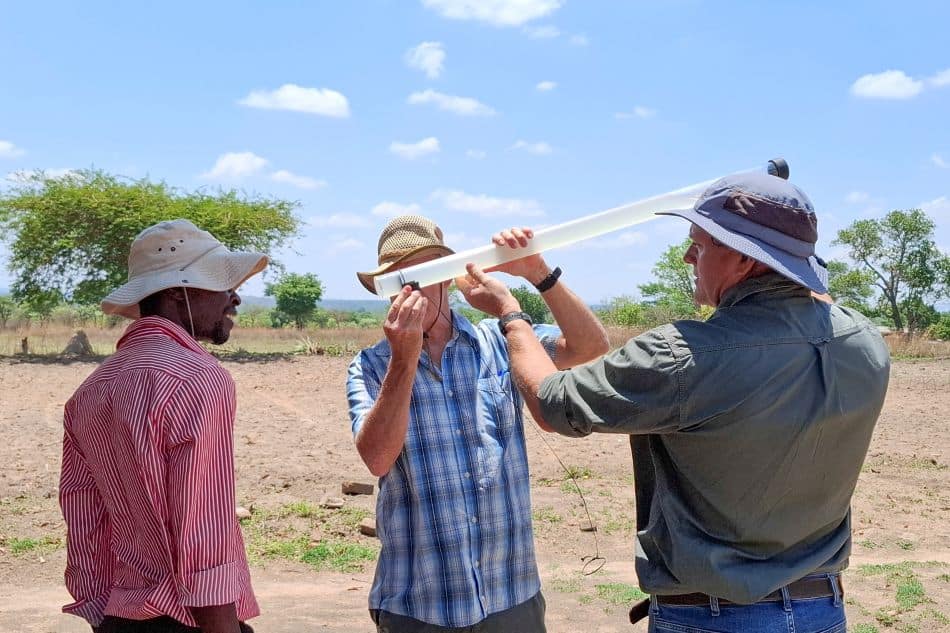
The potential of citizen science to advance agroecology
This is where the mobilization of farmers, communities and stakeholders around the principles and practices of agroecology can be transformative for food systems not only in Kenya and Zimbabwe, but globally. Co-created citizen science initiatives, increasingly popular around the world, are useful for generating data and fostering engagement on a range of environmental and agricultural issues.
Human-created problems require human-centred solutions. This demands new ways of thinking and acting – shifting away from the behaviors that contributed to these challenges in the first place.
Self-assessments are a powerful tool for farmers and other stakeholders within the food system to evaluate their current practices and identify areas for improvement. When supported by simple physical and digital tools, farmers can evaluate their own performance, and chart and influence their own learning.
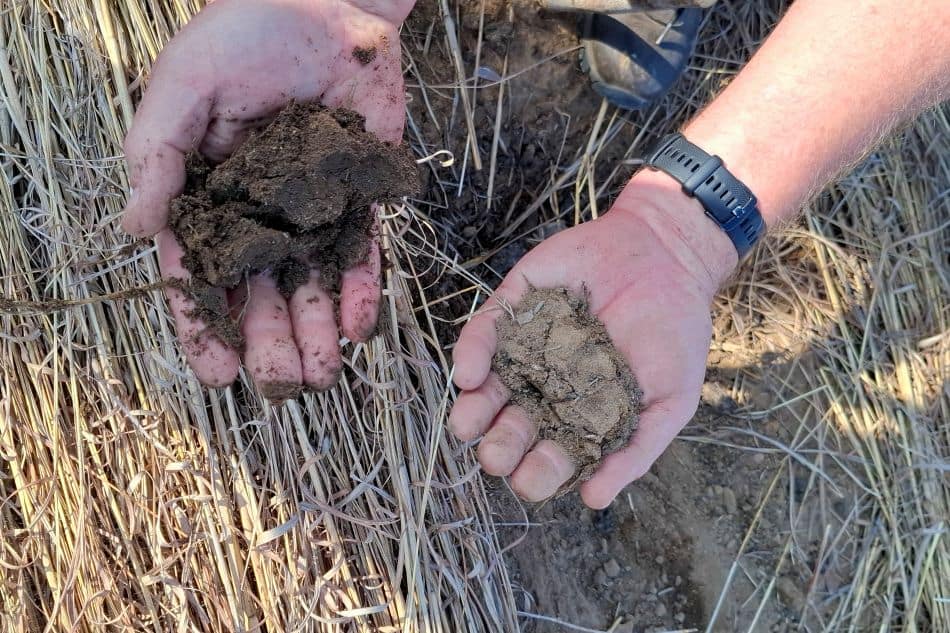
A mobile app for farmers to stay on track
Fieldwork conducted in Kenya and Zimbabwe, explored the feasibility of using a mobile application to collect data on various agroecological indicators, such as soil health, biodiversity and water management, and socioeconomic factors related to agroecology.
The findings indicated that there is interest by smallholder farmers in the use of citizen-science tools to assess their compliance in implementing the 13 agroecology principles in their farming.
Farmers will use the app to score themselves on the agroecology principles which were developed to improve resource use efficiency, strengthen farmers’ resilience and secure social equity and responsibility.
The mobile app will then feed the data gathered to the respective ministries of agriculture and their key partners, allowing them to identify the gaps, strengths and weaknesses in the implementation of agroecology practices and make informed decisions to transition towards more sustainable and resilient agricultural systems.
Once fully developed, the agroecology self-assessment tool will provide smallholder farmers with real-time personalised feedback through a portal based on household and field assessments, fostering knowledge sharing and enabling evidence-based decision-making. Once operational, the app will be one of the drivers in the establishment of a citizen science community of practice, empowering smallholder farmers to collaborate and share both scientific and indigenous knowledge.
By leveraging co-created citizen science solutions, the mobile app will build capacity, generate data on agroecology transition and promote sustainable agricultural practices and community empowerment in line with the 13 principles of agroecology. This will undoubtably improve food security and contribute to global efforts for more resilient and equitable food systems.


